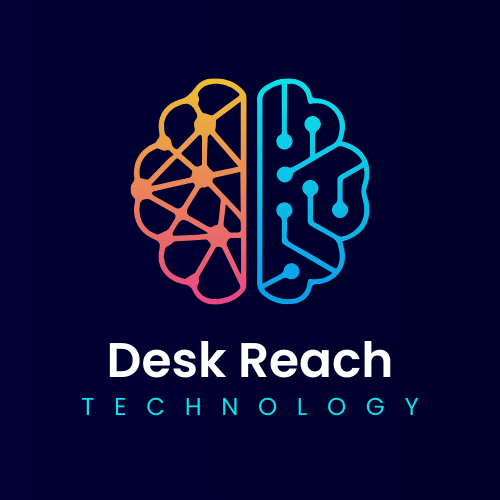
In the ever-evolving landscape of technology, the role of a Cloud Engineer has become increasingly pivotal. As we step into 2024, the demand for skilled professionals in this field is soaring higher than ever. In this comprehensive guide, we will navigate the intricate steps to carve your way into becoming a proficient Cloud Engineer.
Understanding the Landscape of becoming a Cloud Engineer
The Current State of Cloud Computing
Before delving into the specifics, let’s grasp the current state of cloud computing. Cloud computing has become the backbone of modern businesses, offering scalability, flexibility, and efficiency. As more enterprises migrate their operations to the cloud, the need for adept Cloud Engineers is skyrocketing.
Key Skills in 2024
The landscape of cloud engineering is dynamic, and staying ahead requires a diverse skill set. In 2024, proficiency in cloud platforms such as AWS, Azure, and Google Cloud is non-negotiable. Moreover, a deep understanding of containerization technologies like Docker and Kubernetes, coupled with expertise in scripting languages like Python, is imperative.
Navigating the Journey
Building a Strong Educational Foundation
1. Pursue a Relevant Degree
The first step on your journey to becoming a Cloud Engineer is acquiring a strong educational background. Pursue a degree in computer science, information technology, or a related field. Many renowned universities offer specialized programs catering to cloud computing.
2. Gain Certifications
Supplementing your academic credentials with industry-recognized certifications is a game-changer. Certifications from AWS, Azure, and Google Cloud validate your practical skills and make your profile stand out in the competitive job market.
Hands-On Experience
3. Engage in Real-world Projects
Theory is vital, but hands-on experience is paramount. Engage in real-world projects, either through internships, personal initiatives, or contributing to open-source projects. This practical exposure not only enhances your skills but also showcases your ability to apply theoretical knowledge.
4. Leverage Cloud Labs
Embrace cloud labs and simulate real-world scenarios. Platforms like AWS Cloud9 and Google Cloud Shell provide a sandbox environment to experiment, refine, and enhance your skills without the need for physical infrastructure.

Crafting Your Professional Identity
Building a Stellar Resume
5. Highlight Relevant Skills
Craft a resume that highlights your proficiency in key areas. Use specific keywords such as cloud architecture, DevOps practices, and automation tools to make your resume SEO-friendly and appealing to potential employers.
6. Showcase Certifications
Devote a section of your resume to showcase your certifications prominently. This not only acts as a quick reference for recruiters but also reinforces your commitment to continuous learning.
Networking and Online Presence
7. Leverage Professional Platforms
In the digital age, networking transcends physical boundaries. Leverage professional platforms like LinkedIn to connect with industry professionals, join relevant groups, and stay updated on the latest trends.
8. Maintain a Blog or Portfolio
Create a blog or portfolio showcasing your expertise. Regularly contribute content related to cloud engineering, sharing insights, solving problems, and establishing yourself as a thought leader in the domain.
Ace the Interviews
Technical Interviews
9. Practice Problem-solving
Technical interviews often involve problem-solving scenarios. Regularly practice coding challenges and participate in online coding competitions to sharpen your analytical and coding skills.
10. Stay Updated on Industry Trends
Demonstrate your commitment to staying at the forefront of technology by staying updated on industry trends. This not only impresses interviewers but also positions you as a candidate with foresight.
The Final Leap
Job Search Strategies
11. Target Specific Companies
Identify companies aligning with your career goals and values. Tailor your applications to showcase how your skills align with their specific cloud infrastructure and requirements.
12. Leverage Recruitment Agencies
Recruitment agencies often have insights into industry demands. Partnering with them can provide access to exclusive opportunities and streamline your job search process.
Conclusion
In conclusion, the journey to becoming a Cloud Engineer in 2024 is multifaceted, demanding a combination of education, hands-on experience, and strategic positioning. By following these comprehensive steps, you position yourself not just as a candidate but as a sought-after professional ready to navigate the complexities of cloud engineering.
The Only Resources You Need
- AWS Certifications
- Beginner – AWS Certified Cloud Practitioner
- Intermediate – AWS Certified Solutions Architect Associate
- Advanced – AWS Certified Solutions Architect Professional
- Azure
- Beginner – Azure Fundamentals [AZ-900]
- Intermediate – Azure Administrator [AZ- 104]
- Advanced – Azure Solutions Architect [AZ-304]
Learning Sources:
- Udemy
- LinkedIn Learning
- Acloudguru
Image credits: Google & Freepik
